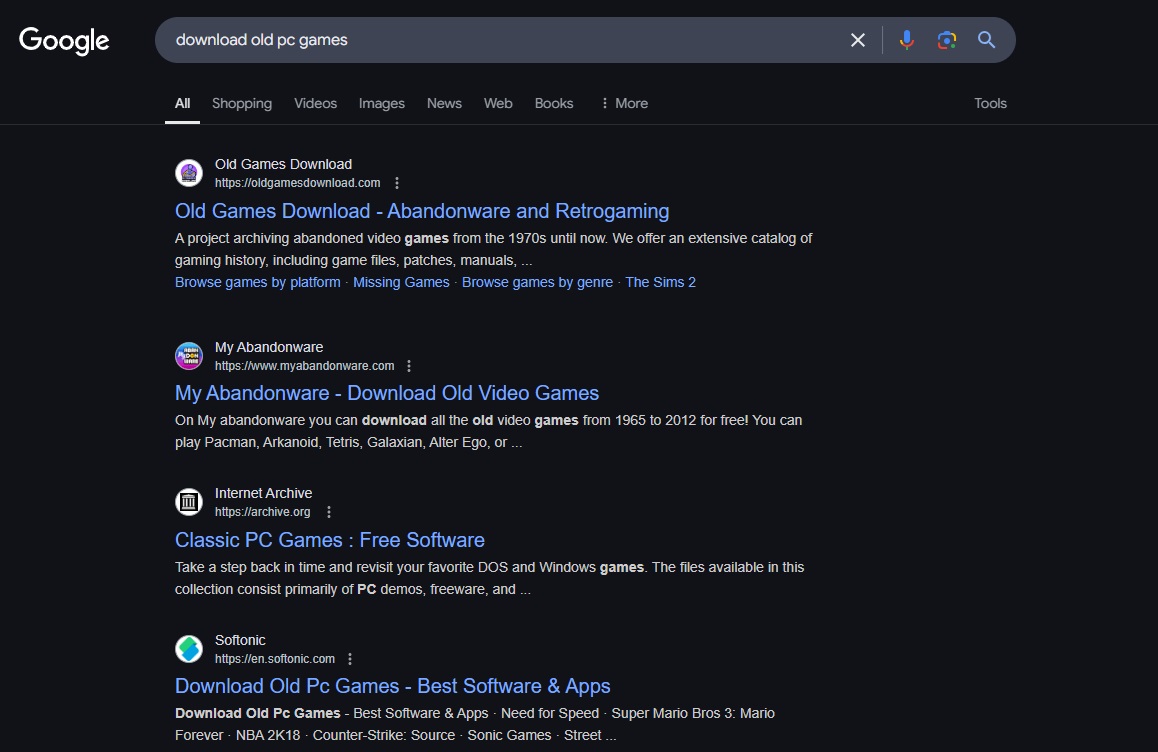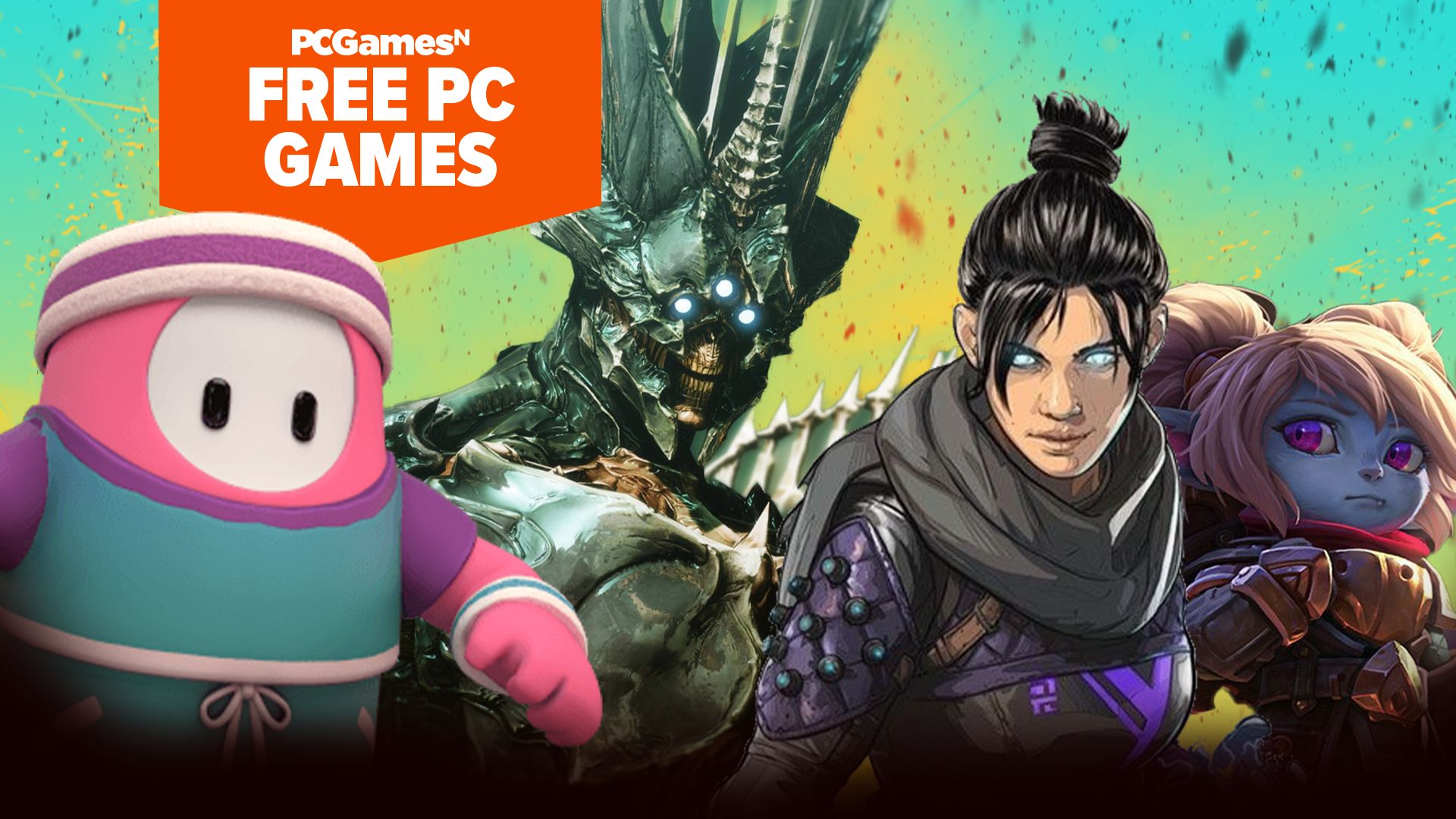
Retro Revival: No-Download Games for Vintage Computers in 2025
Remember the satisfying clunk of an old keyboard, the whirring hum of a CPU fan, and the chunky pixels dancing on a CRT monitor? For many, the allure of vintage computing isn’t just a nostalgic flicker; it’s a full-blown resurgence. And as we barrel towards 2025, a fascinating trend is taking hold: the proliferation of "no-download" games specifically designed or adapted for these charmingly antiquated machines. Forget complex installations, driver headaches, or system requirements that demand a supercomputer. We’re talking about instant gratification, digital archaeology, and a vibrant community breathing new life into old silicon.
Let’s face it, the modern gaming landscape can be exhausting. Gigabytes of downloads, endless updates, always-online requirements, and hardware demands that push the bleeding edge of technology often leave players feeling more frustrated than fulfilled. It’s a relentless arms race of graphical fidelity and processing power. But what if the antidote lies not in the future, but in the past?
By 2025, the concept of "retro gaming" has matured beyond simply emulating old console ROMs. It’s about a holistic experience, one that often involves firing up a genuine DOS machine, an early Windows 95/98/XP rig, a classic Macintosh system, or even modern Raspberry Pi setups configured for vintage emulation. The beauty of these no-download games is that they bridge the gap between the limitations of old hardware and the convenience of modern access.
The "Why" Behind the Retro Revolution
So, what gives? Why are people gravitating towards machines that, by today’s standards, are slower than a smart toaster?
- Nostalgia, Unplugged: For a generation that grew up with these systems, it’s a powerful trip down memory lane. It’s not just about playing the games; it’s about recapturing the feeling of a simpler time, before social media and constant connectivity became the norm. The tactile feedback of a mechanical keyboard, the distinctive soundscape of an old PC – it all contributes to a powerful emotional resonance.
- Digital Fatigue & Simplicity: The modern internet can be overwhelming. Old computers offer a refuge, a digital zen garden. The limited capabilities force a return to simpler game design, focusing on mechanics, puzzles, and engaging narratives rather than photorealism. These games are often quick to learn, but challenging to master – a perfect antidote to the sprawling, often unfocused open-world epics of today.
- Accessibility & Preservation: Not everyone can afford a high-end gaming PC. Old computers, often found for cheap or even free, offer an incredibly accessible entry point into computing and gaming. Furthermore, the retro gaming community is fiercely dedicated to digital preservation. No-download games, especially those running in browsers, contribute to this by making classic experiences and new retro-style titles widely available without proprietary software or complex installations.
- Sustainability: In an increasingly consumption-driven world, reusing old technology aligns with a growing eco-conscious mindset. Instead of discarding perfectly functional hardware, enthusiasts are giving it a second, vibrant life.
- The Indie Renaissance: A new generation of developers, many of whom grew up with these systems, are drawn to the creative constraints of retro computing. These limitations often spark incredible innovation, forcing developers to think outside the box and prioritize clever design over raw power.
What Exactly Are "No-Download" Games in 2025?
In the context of vintage computers, "no-download" isn’t strictly about never touching a file. It’s more about minimal friction and instant playability.
By 2025, this primarily means:
- Browser-Based Experiences: The most prominent form. Thanks to advancements in HTML5, WebAssembly, and JavaScript frameworks, modern web browsers are incredibly powerful. They can effectively emulate older systems (like DOSBox in a browser), run sophisticated pixel-art games directly, or host interactive fiction that feels right at home on an older display. On an actual vintage machine, this might mean using a lightweight, older browser (if compatible) to access very basic HTML games, or more commonly, running a modern, light browser on a slightly newer "vintage" machine (e.g., a Windows XP machine) or a Raspberry Pi acting as a retro gateway.
- Web-Based Emulators & Frontends: Platforms like the Internet Archive’s Software Library have been pioneers here, allowing users to play thousands of DOS, arcade, and console games directly in their browser. By 2025, these platforms are more robust, offering better performance, controller support, and even multiplayer options, all without a single download to your local machine (beyond the initial browser cache).
- "Fantasy Consoles" & Micro-Platforms: Think PICO-8, TIC-80, or similar virtual machines. These are self-contained environments designed to mimic the limitations of 8-bit or 16-bit systems. Games for these platforms are often tiny, load instantly, and can be embedded directly into web pages or run with minimal, portable executables that don’t require complex installation. While you might "download" the PICO-8 runtime once, the games themselves are tiny cart files that load instantly.
- Text-Based Adventures & Interactive Fiction: These classics never truly went away. By 2025, new interactive fiction experiences are being crafted specifically with retro aesthetics and simple interfaces in mind, often playable directly in a web browser or as small, self-contained files that launch instantly on older systems.
- Self-Contained Executables (for specific older OSes): For truly old machines, "no-download" might mean a single, tiny .EXE file (for DOS or early Windows) or a standalone application (for classic Mac) that doesn’t require an installer, just a double-click. These are often modern creations built with retro toolkits, designed to run natively with minimal fuss.
The Landscape of Games in 2025
So, what kind of experiences can you expect to find by 2025 in this no-download retro haven?
- Archival Gems Reborn: Thanks to sophisticated web-based emulators, the entire back catalog of DOS games, classic arcade titles, and early console masterpieces is available at your fingertips. Platforms like RetroArcade.io or the "Digital Preservation Vault" (hypothetical, but likely) offer curated libraries where you can click and play instantly. Expect enhanced compatibility, better control mapping, and even community-driven save states.
- Modern Retro Originals: This is where the true innovation lies. Indie developers are actively creating new games that adhere to strict retro constraints – limited color palettes, low resolutions, chiptune soundtracks, and simple control schemes. These aren’t just homages; they are fresh experiences designed to evoke the feeling of playing a long-lost classic. Imagine a new text-based RPG with dynamic AI interactions, or a challenging pixel-art platformer with emergent gameplay, all running seamlessly in your browser.
- Example: "PixelQuest Legends," a browser-based, procedurally generated roguelike built entirely in HTML5, designed to run flawlessly on a 2005-era laptop or a modern Raspberry Pi. Its charming 16-color palette and simple keyboard controls make it instantly accessible.
- "Demakes" and Retro Interpretations: As a playful sub-genre, "demakes" take modern AAA titles and reimagine them as if they were made for an 8-bit or 16-bit system. By 2025, these demakes are more sophisticated, offering genuinely compelling gameplay rather than just visual gags. Picture a "Cyberpunk 2077" demake as a top-down, turn-based RPG for DOS, playable directly in a browser.
- Interactive Fiction and Visual Novels: The simplicity of text and static images makes these genres perfectly suited for no-download play on older systems. Expect a resurgence of rich, branching narratives and experimental storytelling, often with beautiful pixel-art backdrops, accessible via a web link.
- Educational and Creative Tools: Beyond pure gaming, no-download retro environments are becoming fertile ground for learning and creativity. Simple coding environments, pixel art editors, and music trackers designed to mimic old software are accessible in a browser, fostering a new generation of digital artists and programmers on accessible platforms.
The Community and the Creators
The engine driving this retro revival is its passionate community. Forums, Discord servers, and YouTube channels dedicated to vintage computing are thriving. Here, enthusiasts share tips on hardware restoration, discuss new retro game releases, and celebrate the unique charm of older systems.
Indie developers, often operating as solo acts or small teams, are at the heart of the new no-download movement. They are artists and engineers who see the limitations of old tech not as barriers, but as creative springboards. As indie developer Maya Sharma, known for her minimalist browser-based puzzle games, commented in a recent online interview, "Building for these constraints forces you to be incredibly clever. You can’t rely on flashy graphics; every pixel, every line of code has to count. It’s incredibly liberating."
Platforms like itch.io continue to be crucial for discoverability, hosting countless small, experimental, and perfectly retro-compatible games. By 2025, we’ll likely see more specialized platforms emerging, perhaps even subscription services for curated libraries of premium no-download retro titles, offering developers a sustainable way to monetize their passion.
Challenges and the Road Ahead
While the future of no-download games for vintage computers in 2025 looks bright, there are challenges:
- Browser Compatibility on Truly Old Systems: For a genuine 1990s machine, running a modern browser capable of WebAssembly is often impossible. The "no-download" aspect here relies more on light, self-contained executables or modern machines (like a Raspberry Pi or an XP box) acting as a gateway. The trend acknowledges this duality, catering to both purists and those who appreciate the spirit of retro on more capable but still "vintage-feeling" hardware.
- Monetization: While passion drives many, sustainable income is vital for developers. Innovative models, perhaps through micro-transactions for cosmetic items, "pay-what-you-want" models, or the aforementioned subscription services, will be key.
- Discoverability: With an explosion of content, cutting through the noise to find quality no-download games remains a hurdle. Curation and community spotlighting will become even more important.
- Digital Rot: While the goal is preservation, the underlying technologies (like browser standards) are constantly evolving. Ensuring that today’s HTML5 games are playable in 20 years will require ongoing effort.
Conclusion: A Timeless Allure
By 2025, the landscape of gaming for vintage computers is far from a barren wasteland. It’s a flourishing ecosystem, rich with innovation, nostalgia, and a deep appreciation for the craft of game design. No-download games, whether played through a sophisticated web emulator on a modern device or a tiny executable on a genuine antique, represent the ultimate in accessible, friction-free fun.
This isn’t just about revisiting the past; it’s about shaping the future of how we interact with digital entertainment. It’s a quiet rebellion against bloat, a celebration of simplicity, and a testament to the enduring power of good design. So, dust off that old machine, fire up a browser, and prepare to discover a whole new world of instant, unadulterated joy. The retro revival isn’t just coming; it’s already here, and it’s more exciting than ever.
